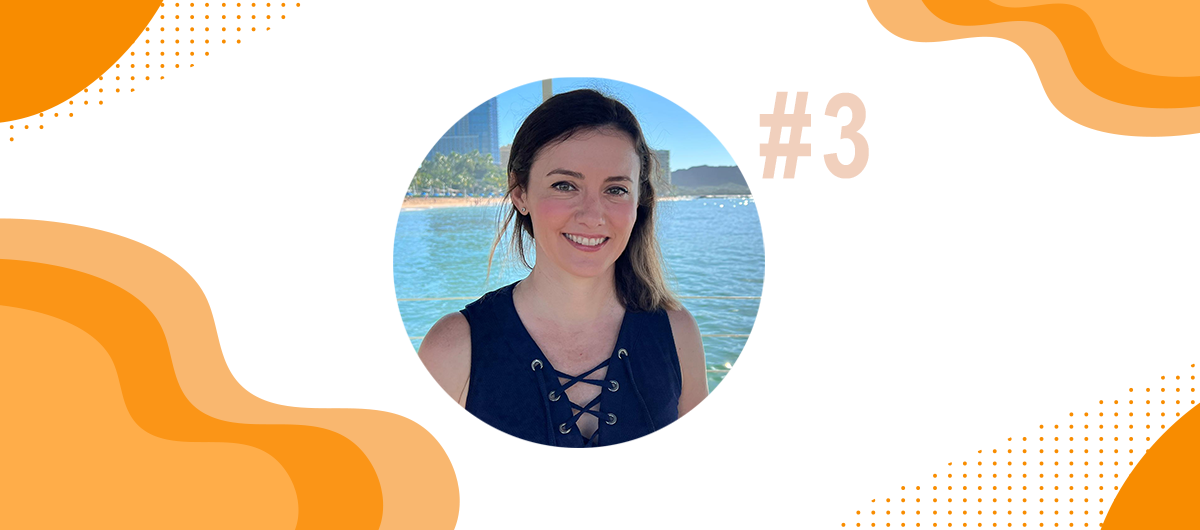For this week’s Befree blog post we return to our Befree Talks with a very active and versatile SAP professional: Cristina Gil. Consolidated in the freelance work model -she has been being a freelancer since 2012-, she talks to us about how to be a good SAP consultant according to her experience of more than 15 years and has worked on projects developed in several countries. Let’s see what she has to tell us!
QUESTION: You have been working as an SAP consultant for more than 15 years, how did you get to know this world and what interested you the most?
ANSWER: I got to know SAP right after graduating. I worked as an SAP user creating production orders. I remember wanting to check the status of the quality controls, but I didn’t have enough authorisations and that’s what made me curious. One day I saw an offer for a SAP consultant position and decided that it had to be my profession. I didn’t get the first interview, but I didn’t give up. In fact, my first salary as an SAP consultant was half of what I got in my first user internship. Although I have had ups and downs, I don’t regret the decision I made.
Q: You are an expert in several SAP areas, although SD stands out. Why did you choose this specialisation? What is your view on this area of expertise? Do you think it is better to specialise in one area or to master a bit of several?
A: Actually, I was made to chose it! I wanted to be a production consultant, more in line with my industrial engineering studies, but in the consultancy where I started they needed an SD and not a PP. That’s why I started there. Anyway, I think SD is a good module to specialise in. Not all companies make products, but they all need to sell.
I think a good consultant should have basic notions in several areas. That makes us more complete. Clients are annoyed when consultants pass the buck from one module to another instead of tackling the problems. It is good to specialise because you know almost all the possibilities of the module, but you should understand in detail the integration with the other areas. All modules are integrated. In addition, I also recommend knowing the part of integrations via EDI or API with external applications, which is essential in an economy where immediacy is a priority.
Q: In your profile you indicate that you prefer to work remotely, what is your vision of working from home?
A: I love the time and flexibility you gain. Being able to work from anywhere in the world is a luxury. Losing social contact with colleagues was difficult, but in my case the move to a new country and the coronavirus came together. I’m a very social person and I need interaction with people. I try to find a balance by turning on the camera from time to time in meetings and socialising with friends outside of work. Once you adapt to working remotely, it’s perfect.
Q: You also say that you prefer to work as a freelancer rather than as part of a staff. In your opinion, is it better to work as an in-house SAP expert or as a freelancer?
A: I started freelancing at the beginning of 2012. Freelancing means not counting holidays and taking as many as I want, knowing that I don’t get paid for those days. It means not paying VAT on some of my purchases and it gives me the freedom to change projects without it being frowned upon on my CV. It means I can combine small projects with my current project. I feel more in control of my life being a freelancer for my own company, but I understand that this is a matter of personality. Working in-house also has advantages, such as being supported by other experienced colleagues and receiving training.
Q: In a profession like this, which appears to be solitary, how important is support among SAP professionals? Do you think it is a myth that SAP professionals appear to be lonely?
A: Being a freelancer is more of a lone ranger than being on staff. You have to be more proactive in terms of training and problem solving. On staff you have colleagues to share opinions and ask questions to, but it’s also true that if you have a good network of contacts and Google, you always find clues for what you need.
In recent years, SAP has greatly improved its support community. In my case, belonging to ACISAP also helps me, we are a group of SAP consultants in similar situations and with the same problems, we help each other. I’m a big fan of Befree, I really like the way they deal with each other. I recommend them to anyone who wants to work as a SAP freelancer in Spain.
Q: Let’s move on to a more personal level. You have a very interesting project, the blog on the latest SAP Gayoway trends. Where did the idea come from and what is your goal with it?
A: The idea was born in times of coronavirus. I was left without a project and found time to do other things. My goal is to make SAP accessible and understandable to SAP consultants or customers who are lost with the digital transformation and maybe also help people who want to get started. being a freelancer being a freelancer
Q: You define yourself as sociable and adventurous – you actually had a skydiver’s licence! What do you think are the qualities that every SAP professional should have?
A: I lost the licence in 2016 because to keep it I had to jump once a month and lack of time made me give it up. It ended up becoming more of an obligation than a hobby, but that doesn’t mean I’ve stopped jumping. Last month I did a tandem jump! I’m sure I’ll do another one soon.
I would say that curiosity, tenacity and proactivity are fundamental in an SAP consultant. It is important to be curious because SAP is very big and new things are always appearing. I justify the tenacity because SAP is not easy to learn, and the documentation is difficult to understand. You need to be willing and constant. Regarding proactivity, a good consultant needs to look for alternatives in order to offer the client the best solution. A good consultant is not the one who says “that can’t be done with SAP”, but the one who finds a way to make it possible or explains to the client what is necessary to do it.
Q: Finally, what message would you like to send to the professionals and companies in Befree?
A: Try to stay up to date. With S/4HANA comes a lot of changes and it will be easy to become obsolete. What you know serves as a basis, but to be a good consultant you need to study and keep up to date.






